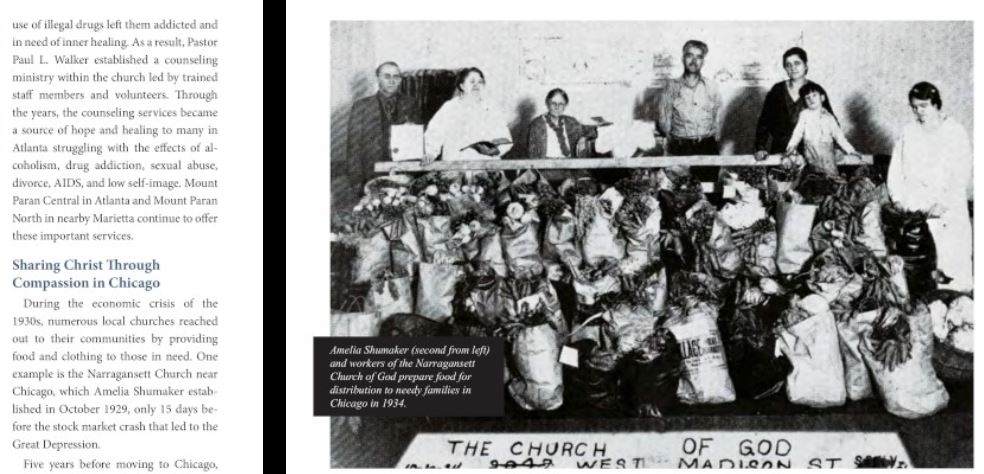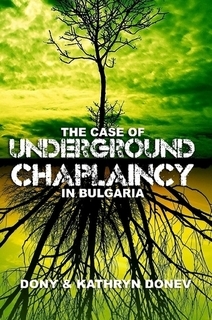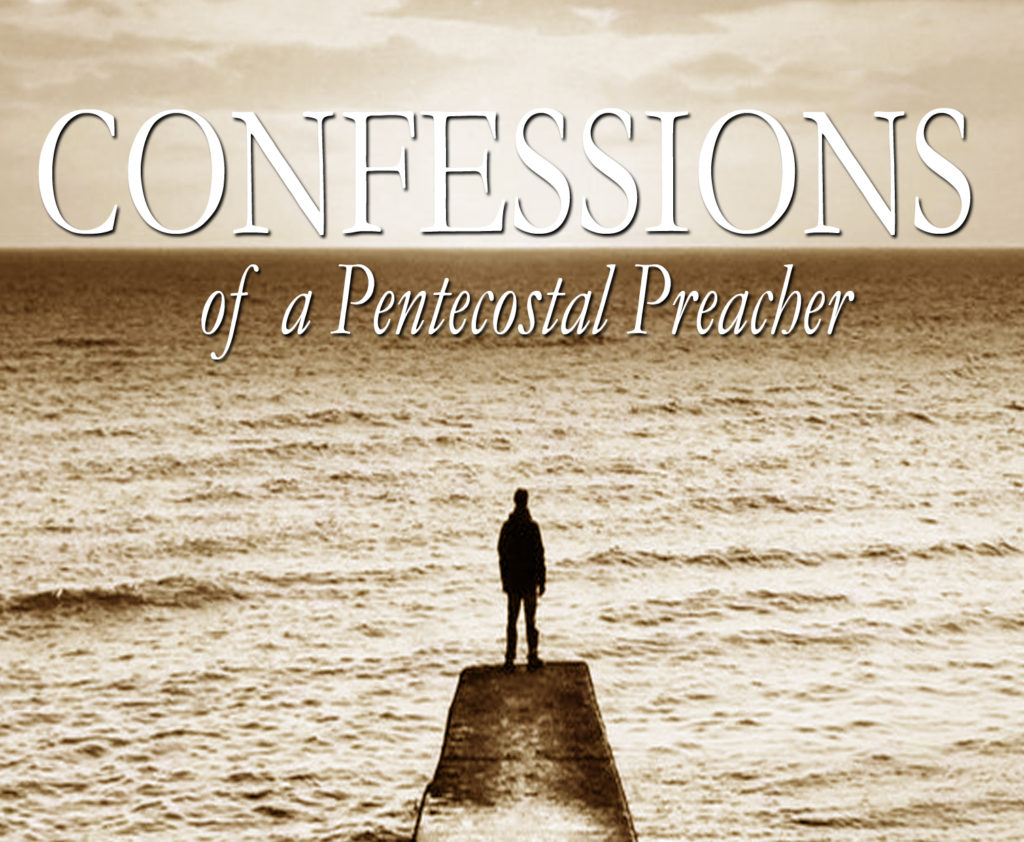25 Years Southern Highroads Preacher

Dony K. Donev, D.Min., Th.D.
Now, let me spin you a tale of my first pilgrimage to Cleveland, a place nestled in the crook of the Appalachians, where the hills whisper secrets older than Methuselah’s beard. It was New Year’s Eve, 1995, when I rolled in from the wind-whipped streets of Chicago. Cold? Why, it was colder than a banker’s heart in a foreclosure! Snow? Piles of it, heaped high as a politician’s promises! Blizzardy? I reckon the Almighty Himself was shaking out His winter quilt, burying the world in flakes as big as goose feathers. I stepped out of my baby blue Grand National, shivering like a plucked chicken.
My second jaunt to these parts came in the golden autumn of 1997, when I took to the Southern Highroads Trail. If you ain’t never seen that ribbon of road in the fall, with the leaves blazing like a painter’s fever dream – reds and golds fit to shame a king’s ransom – well, you’ve missed a slice of Heaven. I’ve driven that trail so often since, my automobiles could nearabout navigate it blindfolded. There was that old Buick, a candy-apple-red 1.6 CRX, spry as a jackrabbit; a pair of Volvos, sturdy as Swedish hymns; and a Dodge that grumbled but never quit. Why, those machines know every twist and turn of that road better than I know my own signature.
It all began in earnest during my first semester at seminary, a trial that’d make Hercules himself throw up his hands and take to whittling. Picture this: a load of 26 credit hours, 13 papers to scribble (each one a literary ordeal to rival the labors of Job), 13 Sunday morning preaching appointments down in South Carolina, and a mere 12 weeks to wrestle it all into submission.
Some Sundays, I’d stand in a pulpit near Clemson, preaching three times till my throat was raw as a buzzard’s breakfast, then climb into my car and tear back up Southern Highroads that very night, the stars winking like they knew my hurry. Other times, I’d be at revivals, driving down every day and back again after we’d lingered at the altar well until midnight. The Southern Highroads became my confessor, my companion, and my taskmaster, and my trusty steeds.
My cars learned its ways by heart, carrying me through the dark. A winding path that stretched like a ribbon tossed across the hills of Appalachia, a spirited jaunt, kicking off in Clemson and sashaying through Seneca and Westminster, before hightailing it straight to Clayton, where the mountain hills stand like old philosophers. Back in those days, that South Carolina stretch was a speedster’s dream and my little CRX Si loved them curves like a fiddler loves a reel!
Nowadays, they’ve gone and fancied up the road with new bridges and turns, especially near the new resorts and golf clubs, where folks swing clubs at little white balls and call it a good time. But back then, it was wilder than the Wild West, full of twists that’d test a mountain goat’s nerve. My CRX danced through those bends leading up to Clayton in 30 minutes or less with the glee of a schoolboy let loose on a summer’s day. Now, I ain’t saying I broke all the laws of man and nature on the Southern Highroads, but I reckon that road and I had an understanding. It whispered, “Go on, son, give it a whirl!”
After crossing downtown Clayton, I pressed the pedal hard toward Hiwassee. Thirty minutes, maybe less. The road was much clearer back then. The three 10-mile-an-hour curves past the scenic view were much gentler then. Beyond them, the passing lane opened up, and the car held steady at 80, sometimes 85, for a good stretch. I once dreamed of a great white cross on the hill at Clayton’s edge. Now it stands there atop the hill, shining like a lighthouse in the night.
Hiwassee meant something to me later, not then. In the ‘90s, I passed through fast, aiming for Young Harris and Blairsville. Murphy was a place I circled around on purpose. Decades on, I learned Young Harris was Methodist, married to a Mormon woman. Back then, they were just one red light towns, brief midnight shadows on the dark no moon road, gone quick as I drove, weary from preaching all day. My 75-mile half-way point there was a green painted gas station that is now long gone. An RV dealership sits there now or maybe a repair shop.
The night always hung-over Blairsville like a cheap suit, wrinkled and heavy with the promise of trouble. I swung my car right at the fork where First Baptist now sits always bypassing Murphy. Back then, that corner was just a pumps-and-gravel affair, the kind of place where a man could fill his tank and his thoughts with nothing but the hum of crickets.
My next destination was the Big Bear gas station at Decker’s Market, a lonely outpost where the road met nothing but shadows. From there to Ducktown’s Piggly Wiggly, via the twisting snake of Wolf Creek, it is exactly 14 miles as the crow flies. This old preacher, with a Bible in one hand and a lead foot on the gas, could carve that stretch in ten minutes flat.
Time’s a thief with a mean streak. The Piggly Wiggly’s gone now, selling nothing but broken dreams instead of canned beans and green okra. Ducktown’s got itself a red light right at the front of the store, blinking red and waiting for something that ain’t coming back.
The Southern Highroads climbed and fell, a hard stretch of asphalt past the Whitewater Center, now just ashes and memory. Then it dived sharp into the Ocoee. I would be half asleep by then, eyes heavy, but my hands knew the wheel. Each turn came clear -left, right, left again – with a rhythm burning into me like an old saint’s prayer. The road didn’t care about the years or the sermons I’d preached. It just stretched on, leading me through the ghosts of shadows laying over the white waters of the Ocoee and toward a horizon that always seemed one turn away. Until the last turn by the dam and into the four-lane leading into ol’ Cleveland.
Now, I ain’t no hero, mind you, just a fellow, preaching His Word and rattling along them Southern Highroads like a pilgrim with a cause for over a quarter century now. But if you ever find yourself in Cleveland on a snowy New Year’s Eve or a crisp fall day, take a drive on that Southern Highroads trail. And you’ll see why my cars, bless their iron souls, never forgot the way.

Bulgaria Sets October 20th for 7th Early Parliamentarian Elections in 3 Years
August 15, 2024 by Cup&Cross
Filed under Featured, News, Publication
President Rumen Radev has appointed Goritsa Grancharova-Kozhareva as the new acting Prime Minister and expects her to propose a caretaker government by August 19. During a meeting at the presidential residence on Dondukov 2, Radev outlined the timeline and expectations for the formation of the new government.
Radev indicated that while the Constitution does not specify a strict deadline, October 20 is considered the most suitable date for the upcoming early parliamentary elections. He instructed Grancharova-Kozhareva to present a proposed government structure and composition by August 19 to ensure compliance with legal requirements.
Government Elections in Bulgaria (2005-2024):
2005 Parliamentary Elections
2006 Presidential Elections
2007 Municipal Elections
2009 Parliamentary Elections
2009 European Parliament elections
2011 Presidential Elections
2011 Local Elections
2013 Early parliamentary elections
2014 Early Parliamentary Elections
2015 Municipal Elections
2016 Presidential election
2017 Parliamentary elections
2019 European Parliament election (23-26 May)
2019 Bulgarian local elections
2019 Municipal Elections
2021 April National Parliament election
2021 Second National Parliament election
2021 Third National Parliament and Presidential elections
2022 October elections for 48th National Assembly after the fall of a four-party coalition in June 2022.
2023 Bulgarian parliamentary election
2023 Second Bulgarian parliamentary election for the year
2024 Bulgarian parliamentary election
2024 Second Bulgarian parliamentary election for the year
90 Years Ago, Narraganset Church of God Led in Benevolence
Narraganset Church of God was started by a women-preacher with only 10 members. Rev. Amelia Shumaker started the church only 15 days before the Great Depression began in 1929. She became a widow five years prior to moving to Chicago. Passing through the Great Depression by 1934, only five years after its establishment, the Narraganset Church of God was already a leader among the state benevolence ministries.
Located at 2254 N. Narraganset Avenue, the church officially took the name of its location in 1955. Early issues of the Church of God Evangel describe it as a South Side church, later corrected to the only Chicago Church of God. By 1994, the congregation has become one of only three Church of God locations in Chicago Metro. It was also where the first and only Bulgarian Church of God congregation in North America was founded also with only 10 members. (More from this timely research soon…)

Celebrating 30 Years in America
I received my first visa for the United States exactly 30 years ago, after a meeting with Dr. Lovell R. Cary and Bobby G. Ross. My interview was consecutively scheduled for the day before Christmas, December 23, 1993. Because of the short time, it was conducted and approved personally by the head consular at the U.S. Embassy in Sofia. The cost of the visa was $23. I had only $18 in my pocket. If five bucks had ever made a bigger difference in my life…
I landed in New York late one cold, snowy, January night. Being barely 19 at the time (fixing to be 50 now), I had recently watched Home Alone: Lost in New York. Landing over the brightly lit Manhattan was just like in the movie. The feeling was indescribable.
The first person I spoke with on American land was of course the customs officer. Having reviewed my student visa issued for East Coast Bible College, he suddenly went on an endless rant about how bad Bible colleges are, what is done to students in secret, and how they often operate as a cult. Just now, 30 years later, I am making the connection that as a law enforcement officer, he may have been influenced by the recent David Coresh incident. With this sour taste in my mouth, a blizzard outside and too late to catch even the red-eye flight, I somehow managed to book a hotel for the night and flight for the next morning.
I went under the slow falling snow outside the JFK terminal to wait for the hotel shuttle, only to find myself next to a distinguished lady with a long fur coat waiting for her limo – a NY type, as I am reflecting now from the distance of time. She asked if this was my first time in America – must have been that obvious. And when I affirmed, she pulled a dime out of her pocket, placed it in my hand and to my greatest surprise asked if I knew what it says. I had enough Latin under my belt to tell her the meaning of E Pluribus Unum, to which she replied, “Welcome to America! All of us have come here from somewhere.”
And so, my journey began. Having preached multiple times a week in Bulgaria, my heart was burning to share my experience and message as for the first time in my life, I was seeing churches on virtually every corner. Let’s just say that in the mid-90s, most Pentecostal churches in the Bible Belt were not too eager to let in their pulpit a big Bulgarian with thick Balkan accent. Not much has changed to this regard in 30-years of course. But the ones who were willing are still friends to this very day. And though there have been many agendas for my life, I am still here, still preaching. And still planning to continue to do exactly the same. So, help me God!
CONFESSIONS of a Pentecostal Preacher
To Mark Alan
We know not why good people have to die,
but we do know we must tell their story…
Chapter I: Beyond the Church and into God
Be without fear in the face of your enemies.
Be brave and upright that God may love thee.
Speak the truth always, even if it leads to your death.
Safeguard the helpless and do no wrong.
That is your oath.
~Kingdom of Heaven (2005)
Separation of church from politics of false religiosity
The phone rang heavy and long. It was 4 AM in Bulgaria, but I was already up. A friend on the other end of the line was calling from South Carolina with a warning of some bad situation. The following morning, I was going to be contacted by the Director questioning why we were ministering in churches outside of our denomination.
The truth was we had ministered in some 300 local churches across the Balkan country of Bulgaria crossing all denominational boundaries and gathering youth from just about every confession. God had used us not only to reach and minister and to lead, but to step into an untouched spiritual realm, to undertake an unfamiliar ministry paradigm and to approach a brand new dimension of reality where He was to be the center of it all. And we had obeyed without questions. Now it was time to pay the price!
* * *
Our denomination, the one to which I remain both critically loyal and loyally critical, spreads over some five generations. Through its century old existence, the struggles and tension between theology and praxis has been in the center. And there, in the very essence of Pentecostalism itself, while some are always celebrating and being celebrated in the office or temple, others are always pushed in the periphery of normal life, hidden from the world behind closed doors and seeking a much deeper experience with God.
These modern day mystics are not only forgotten, but often forbidden. For their riot for righteousness cannot be conceived, contained and controlled by the religious norms of organized officiality. They speak as prophets to a world they so fervently try to escape from, about a reality that does not exist in the normal believer’s mindset. A stage of spirituality that cannot be preached without being lived in the social existence. And a relationship of God that goes far beyond common relationism and into God himself. That God, Who does not abide in offices and temples, but on the cross outside of the city walls…
But I knew nothing of this until that cold winter morning when the phone rang through darkness of the night. Knowing what is coming, rarely changes what we have done to get here.
7 Years in Bulgaria: CONFESSIONS of a Pentecostal Preacher
by Dony K. Donev, D.Min.
Upcoming Releases for United States
Celebrating 15 Years of Chaplaincy on the High Seas
 We began our literal journey of ministry on the high seas in 2009. After exploring the opportunity for several years’ prior and submitting applications to various chaplaincy organizations which dealt with such ministry, the doors finally opened for Cup and Cross.
We began our literal journey of ministry on the high seas in 2009. After exploring the opportunity for several years’ prior and submitting applications to various chaplaincy organizations which dealt with such ministry, the doors finally opened for Cup and Cross.
This search for a ministerial identity and its proper application in the real world coincided with the start of the Master’s in Chaplaincy Ministry Program which we designed for the Bulgarian Evangelical Theological Institute in Sofia around 2008-2009. The long standing relationships with professors, active military chaplains from various fields and countries, and the wisdom of several Generals in the field helped us calibrate our ministry focus with what is needed by real people in the real world.
The new fad “to be real” is not enough in a realistic ministry setting. When 25ft. high storm waves beat the aft and the ship is thrown towards the dark wall of ocean waters ahead, one cannot help but “to be real” and depend on a very real and skilled crew. A captain alone cannot run the boat through a storm even if all systems are reported working. It is the crew deep down in the engine room and making its way on the slippery deck that makes it all happen.
The Crew. Some of them have not seen their families for months or even a year at times. They struggle with the same fears and anxieties as the rest of us. Except, while the rest of us can hold on to something for dear life, the crew is obligated by duty to continue to serve and move the boat ahead. The little chapel on the top deck becomes a passage to a lagoon past the riffs of stormy life where stories are shared, prayers are lifted up together and human lives are reclaimed anew for Heaven.
We have found these nontraditional paths of travel and ministry yielding the most unique encounters and connections for Kingdom growth. Our family is thankful for these 10 years and looking forward to even more means of ministry outside of the four church walls. If you would like for us to come to your church as share our journey feel free to reach out to us.
Also important [click to read]:
- U.S. Department of State recognizes our chaplaincy efforts in Bulgaria
- Bulgarian Chaplaincy Association: Integration Proposal with Local NATO Programs
- Bulgarian Chaplaincy Association: Vision and Resolution
- Chronology of our role and involvement in developing Church of God chaplaincy in Bulgaria since 2001
- Master’s of Chaplaincy Ministry Program in Bulgaria Reflections
- The Past Decade of Chaplaincy in Bulgaria (2006-2016)
- Related Publications and Presentations by Cup & Cross Ministries International
More Publications on the Topic and History of Events:
- Chaplaincy Conference and Master’s of Chaplaincy
- Chaplaincy Course in Yambol, BULGARIA
- Bulgarian Chaplaincy Association Annual Meeting
- Family Seminar for Military Men and Women
- Cup & Cross Ministries in Church of God Publications
- The Case of a NATO Chaplaincy Model within the Bulgarian Army
- 10 Years of Military Ministry in Bulgaria
- National Chaplaincy Conference
- Bulgarian Chaplaincy Association Gains Legal Status
- Chaplain Dees Visits Bulgaria
- Chaplaincy Course at the Bulgarian Evangelical Theological Institute
- Bulgarian Chaplaincy Association
- Meeting the NATO Chaplain
- National Chaplaincy Meeting
- Chaplaincy Developments in Bulgaria
- U.S. Bases in Bulgaria
- National Chaplaincy Meeting
- Chaplaincy in Bulgaria
- HEALTHCARE CHAPLAINCY IN BULGARIA
- Chaplaincy in Bulgaria
- Mission Bulgaria
25 Years of Revivals in America
Thankful for 25 Years of Revivals in America
After 33 years of ministry, more than half of it on this side of the globe, we have now preached revivals in America for over quarter of a century. I have lost count how many times we’ve crossed from the Dakotas to Texas, and from the Carolinas to California to preach the Gospel to all willing to hear. I do remember one time when we drove 18 hours straight to Minneapolis, preached a single sermon, turned around and drove back the same distance due for another appointment. I’ve recorded every place, time and sermon. If needed, I can calculate the distance of getting there and back in total millage too. I’ve long lost the count of sets of brakes and tires worn-out during travel. Maybe, the next 25 years I’ll just fly! But through all this, I’ve often stood at a church parking lot, spent out from preaching, looking at the blue sky above and realizing: I am living my dream. Preaching is all I’ve always wanted to do!
Two times, apart from the 1990 post-Communist revival in Bulgaria, we have experienced continuing Holy Ghost revival in America. The first time was in the summer of 1999 in South Carolina, where one revival night multitudes were called to the ministry and on other nights, we just could not close the services with the power of God so powerfully evident. If you were a pastor back then, we most probably preached in your church one of these revivals, which are now marked by our 25-year anniversary.
In 1999, our revivals were weeks before the Y2K. Perhaps naively, I contributed the unusual move of the Spirit and extraordinary attendance to the turn of the 21st century. We were forced to see things a bit more prophetically, when we were hit by a fresh wave of revival pre-pandemic in the Spring and Summer 2019. Along with preaching virtually daily during the revival season, we were able to publish our New Testament Interlinear in Bulgaria and distribute it to our churches just before the shutdown.
This time, the revival in 2023 came a bit sooner than the usual decade-long cycle we had experienced with the past two. As we are getting ready to continue our 2023 Revival Harvest Campaign with a Community Communion service just in time for Thanksgiving this week, we have completed two full months of revivals in Polk County. Some 50 back-to-back services can truly change one’s perspective on our days! That God is at work is not even in question here, but what about the Church?
Exactly 20 years ago in his book “A Call to Righteousness: Impending Judgment,” Dr. David Franklin outlined the cycle of repentance for a nation’s revival as following:
- When a nation persists in violence, the Sovereign Lord confronts and holds responsible,
- When a nation forgets God, He allows for times of repentance,
- If repentance is ignored, God will expose and execute judgment on an unfaithful nation.
Every time God renews His covenant with His people, He shows His presence! (a) We know that God is present in the covenant, because He shows His glory. It happened to Moses and his generation. And it also happened to Solomon several hundred years later. (b) When a generation loses the vision of the Glory of God, God begins renewing His covenant again with a new generation. (c) God is not satisfied with a people who know the signs and the blessings of the covenant. He rests not until He is revealed as the God of the Covenant!
This Biblical truth is valid for any nation in the world, and I often draw a painful parallel of similarities with my home country of Bulgaria; where in October the 7th government elections since the start of the 2020 pandemic did not produce the desired change. Though the voting machines imported from Venezuela were pulled out a day before the election for obvious reasons, the vote went in history as the lowest ever with only 33% participating. This halted the acting government, setting the country for another parliamentarian election in 2024. With two regional wars now (Ukraine and Israel) and record high inflation, Bulgaria is walking a close line to another national crisis as we experienced back in 1997. In the midst of this, the Church of God Balkan Ministry Center in Sofia, which was initially sold in 2021, is back on the market with first installment toward its purchase made on November 16, 2023.
Meanwhile, on the national Day of National Awakening (celebrated after All Saints Day on November 1st), we were able to release and present the first Greek-Bulgarian Interlinear of the New Testament online. Its name, Evangelieto.com, means The Gospel in Bulgarian. This new website is a natural continuation of Bibliata.com – the first Bulgarian Bible online, we released back in the fall of 1996. This new online edition, which has been in the works since 2016, is dedicated to those students of the Bible, who prefer working with the original texts, rather than using the multitude of new Bible revisions often with religious and ideological orientation. The Greek-Bulgarian Interlinear of the New Testament online proposed the following solutions to the Bulgarian Bible translation:
- A non-received text – Textus Haud Receptus
- Critical Edition of the Greek New Testament (Tischendorf, Westcott&Hort, Nestle-Aland, UBS and SBL)
- Literal translation from Greek, made word for word without dynamic equivalents
- Linguistic paradigm for repetitive parallel permutation structures in the Greek-Bulgarian translation
- Analytical Greek New Testament with complete morphology of the words
- Complete textual commentary of the New Testament with thousands of references
- Audio/video reading of the verse with its original and consequent variations
- Discussion board under each verse for pastors and ministers to offer their thoughts on the text.
Thankful for 25 Years of Revivals in America: Revival Must Go On!

Bulgaria’s President set a Date for this year’s Elections
Bulgaria’s President Rumen Radev signed a decree today scheduling the elections for mayors and municipal councilors for October 29.
The head of state has determined the date after a working meeting with representatives of the leadership of the Central Election Commission (CEc).
The conversation discussed the specifics of the local vote and the upcoming work on the organization of the election process. The CEC has informed the president of the technical and logistical features that the commission must comply with for the local elections and its readiness for their holding.
Here you can read about the results of a study that determined for who will one-third of Sofia residents will vote as their future mayor.
Celebrating 14 Years of Chaplaincy on the High Seas
We began our literal journey of ministry on the high seas in 2009. After exploring the opportunity for several years’ prior and submitting applications to various chaplaincy organizations which dealt with such ministry, the doors finally opened for Cup and Cross.
This search for a ministerial identity and its proper application in the real world coincided with the start of the Master’s in Chaplaincy Ministry Program which we designed for the Bulgarian Evangelical Theological Institute in Sofia around 2008-2009. The long standing relationships with professors, active military chaplains from various fields and countries, and the wisdom of several Generals in the field helped us calibrate our ministry focus with what is needed by real people in the real world.
The new fad “to be real” is not enough in a realistic ministry setting. When 25ft. high storm waves beat the aft and the ship is thrown towards the dark wall of ocean waters ahead, one cannot help but “to be real” and depend on a very real and skilled crew. A captain alone cannot run the boat through a storm even if all systems are reported working. It is the crew deep down in the engine room and making its way on the slippery deck that makes it all happen.
The Crew. Some of them have not seen their families for months or even a year at times. They struggle with the same fears and anxieties as the rest of us. Except, while the rest of us can hold on to something for dear life, the crew is obligated by duty to continue to serve and move the boat ahead. The little chapel on the top deck becomes a passage to a lagoon past the riffs of stormy life where stories are shared, prayers are lifted up together and human lives are reclaimed anew for Heaven.
We have found these nontraditional paths of travel and ministry yielding the most unique encounters and connections for Kingdom growth. Our family is thankful for these 10 years and looking forward to even more means of ministry outside of the four church walls. If you would like for us to come to your church as share our journey feel free to reach out to us.
Also important [click to read]:
- U.S. Department of State recognizes our chaplaincy efforts in Bulgaria
- Bulgarian Chaplaincy Association: Integration Proposal with Local NATO Programs
- Bulgarian Chaplaincy Association: Vision and Resolution
- Chronology of our role and involvement in developing Church of God chaplaincy in Bulgaria since 2001
- Master’s of Chaplaincy Ministry Program in Bulgaria Reflections
- The Past Decade of Chaplaincy in Bulgaria (2006-2016)
- Related Publications and Presentations by Cup & Cross Ministries International
More Publications on the Topic and History of Events:
- Chaplaincy Conference and Master’s of Chaplaincy
- Chaplaincy Course in Yambol, BULGARIA
- Bulgarian Chaplaincy Association Annual Meeting
- Family Seminar for Military Men and Women
- Cup & Cross Ministries in Church of God Publications
- The Case of a NATO Chaplaincy Model within the Bulgarian Army
- 10 Years of Military Ministry in Bulgaria
- National Chaplaincy Conference
- Bulgarian Chaplaincy Association Gains Legal Status
- Chaplain Dees Visits Bulgaria
- Chaplaincy Course at the Bulgarian Evangelical Theological Institute
- Bulgarian Chaplaincy Association
- Meeting the NATO Chaplain
- National Chaplaincy Meeting
- Chaplaincy Developments in Bulgaria
- U.S. Bases in Bulgaria
- National Chaplaincy Meeting
- Chaplaincy in Bulgaria
- HEALTHCARE CHAPLAINCY IN BULGARIA
- Chaplaincy in Bulgaria
- Mission Bulgaria
Bulgarian Chaplaincy Association celebrates 26 years in Ministry
Our Bulgarian Chaplaincy Association celebrates 26 years of Military Ministry in Bulgaria since the first event co-hosted by the Bulgarian Armed Forces and government officials in 1997.
2018 The Road toward a Balkan Multi-Ministry Center and Legal Status
2017 Bulgarian Chaplaincy Association: Legal Case Renewed
2015 Revisting the Integration Proposal with Local NATO Programs by Bulgarian Chaplaincy Association
2014 Bulgarian Chaplaincy Association: Vision and Resolution Reaffirmed
2012 First Class of the Master’s of Chaplaincy Ministry Program
2011 Master’s of Chaplaincy Ministry Program Continues
2010 Master’s of Chaplaincy Ministry Program begins in Sofia, Bulgaria
2009 Bulgarian Chaplaincy Association holds an introductory chaplaincy course in Yambol, Bulgaria
2008 The Case of a NATO Chaplaincy Model within the Bulgarian Army released
2007 Bulgarian Chaplaincy Associations Recognized by U.S. Department of State
2006 Registration for the Bulgarian Chaplaincy Association Rejected by Bulgarian Court
2005 The Bulgarian Chaplaincy Association presented before the Bulgarian Evangelical Alliance
2004 Three U.S. Bases in Bulgaria to be Built by 2010
2003 The Case of a NATO Chaplaincy Model within the Bulgarian Army
2002 First Balkan Chaplaincy Conference at the Central Church of God in Sofia, Bulgaria
2001 Church of God Chaplaincy Commission to visit Bulgaria
2000 Euro-seminar: Christian ethics in the military forces
1997 First Military Ministry Seminar in Veliko Tarnovo
With all this accomplished, in the beginning of the 21st century law and chaplaincy meet on the road to democracy as Bulgaria remains the only country in NATO without military force chaplaincy. But before chaplaincy could be legalized completely and endorsed by the state to its full functionality, several changes must be undergone. Some of them are:
- Legal provision allowing chaplains to work as staff in the army, which guarantees the equal presence of protestant chaplains as well.
- The approval, acceptance and implementation of a NATO based model for chaplaincy within the structures of the Bulgarian Army.
- Periodical and systematic educational strategy toward chaplaincy workers among Bulgarian evangelicals.
- A paradigm for cooperation of Bulgarian chaplains from various ethnic, religious and cultural backgrounds.
- Further research publications to enhance the efficiency of chaplaincy within the Bulgarian national context.
Current Context of Chaplaincy in Bulgaria
We are proud to announce that the Master’s of Chaplaincy Ministry Program, we designed and launched in Bulgaria in 2006, has been selected to be part of the Social Service Program of New Bulgarian University. After being for years a valuable part of the regular curriculum of the Bulgarian Evangelical Theological Institute and the St. Trivelius Institute in the capital Sofia, the chaplaincy program has received the highest level of recognition as successful graduates will be finally able to receive government recognized degrees and apply their knowledge and training in chaplaincy on a professional level. The chaplaincy program can also serve within the Integration Proposal of local NATO programs and be instrumental in dealing with the enormous wave of Middle East migrants crossing through Bulgaria today.
The fall of the Berlin Wall introduced a new reality that Bulgaria was not prepared to embrace. The end of Communism was unable to tear down the communist mentality. Today, an entire Bulgarian generation lives with the scars inflicted by their experience under years of the Communist Regime, while another generation lives with an immense historical gap that has formed a new political, social, economical and cultural reality.
Three points are worth noting about Bulgaria’s Postcommunist context. First, in the beginning of the 21st century Bulgaria is left with armed forces, which were organized and influenced by the Soviet model and still act accordingly. The bureaucratic infrastructure disallows and discourages any changes apart from carefully chosen decisions that keep the army’s activities to the minimum possible. The two main factors needed for any change to occur, namely decision-making processes and chain of command, still operate under an Eastern Soviet paradigm.
Second, atheistic morale has gained the status of a positive military qualification in the Bulgarian military. This may sound familiar for any given army; however, in most cases it replaces a religious attitude with an atheistic one. In the Postcommunist context, atheistic beliefs pervade and even when a soldier experiences a genuine need for spirituality, in most cases s/he has no religious root to which to return. This lack of alternative or spiritual choice results in a pessimistic morale, intensified by the required mandatory military services.
Third, a Postcommunist mentality with definite Balkan characteristics rules not only the army but also the country as a whole. The economical, political and cultural crises have remained an undividable part of Bulgaria’s reality in the past 16 years. There, Postcommunist mentality holds captive every progressive thought and idea.
It is natural to conclude that the active solider within the Bulgarian Armed Forces is left without much choice when it comes to his/her personal and spiritual development. A positive career development is possible only when pressed by the economical factors one accepts to be part of a highly inactive bureaucratic machine. On the other hand, any attempt for spiritual growth is constrained and receives little privilege to become fully expressed. Naturally, such dynamics decrease one’s motivation for further development due to the lack of morale emerging from a personal spirituality. And because an army without a spirit is no army at all, the current condition of the Bulgarian Army is in much need of revival.
Also important [click to read]:
- U.S. Department of State recognizes our chaplaincy efforts in Bulgaria
- Bulgarian Chaplaincy Association: Integration Proposal with Local NATO Programs
- Bulgarian Chaplaincy Association: Vision and Resolution
- Chronology of our role and involvement in developing Church of God chaplaincy in Bulgaria since 2001
- Master’s of Chaplaincy Ministry Program in Bulgaria Reflections
- The Past Decade of Chaplaincy in Bulgaria (2006-2016)
- Related Publications and Presentations by Cup & Cross Ministries International
25 Years ago, I left D.C. and Never Looked Back…









